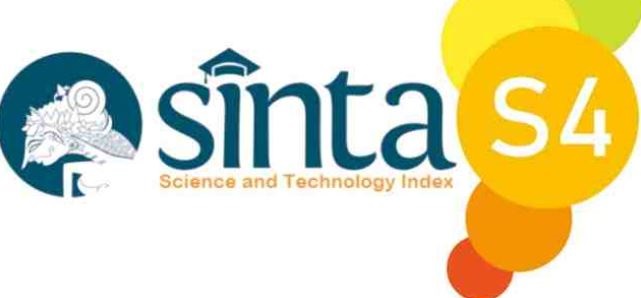Keluarga sebagai Mikrosistem Sosialisasi Politik: Survei Psikologi Politik
 ),
), (1) Universitas Diponegoro
 Corresponding Author
Corresponding Author
Copyright (c) 2022 Muhammad Zulfa Alfaruqy
DOI : https://doi.org/10.24036/rapun.v13i1.114885
Full Text:
 Language : en
Language : en
Abstract
Keywords
References
Alfaruqy, M. Z., & Masykur, A. M. (2014). Memaknai nasionalisme: Studi kualitatif fenomenologis pada presiden mahasiswa perguruan tinggi negeri di Jawa Tengah dan Daerah Istimewa Yogyakarta. Jurnal Empati, 3(2), 246-256.
Alfaruqy, M. Z. (2019). Perilaku politik generasi milenial: Sebuah studi perilaku memilih (voting behavior). Jurnal Psikologi Jambi, 4(1), 10-15.
Barni, D., Ranieri, S., Donato, S., Tagliabue, S., & Scabini, E. (2017). Personal and family sour¬ces of parents’ socialization values: a multilevel study. Avances en Psicología Latinoamericana, 35(1), 9-22.
Berns, R. M. (2013). Child, family, school, community socialization and support (9th ed.). Wadsworth.
Boyd, D. & Bee, H. (2015). Lifespan development (7th ed). Pearson Educations.
Byant, A. & Charmaz, K. (2019). The sage handbook of current development in grounded theory. Sage Publications.
Branscombe, N. R. & Baron, R. A. (2017). Social psychology (14th ed.). Pearson.
Cottam, M. L., Mastors, E., Preston, T., & Uhler, B.D. (2016). Introduction to political psychology (3rd edition). Psychology Press.
Fiske, A. P. (2012). Materelational models: Configurations of social relationship. European Journal of Social Psychology, 42, 2-18.
Feldman, R. S. (2019). Essentials of understanding psychology (13th ed). McGrawHill.
Gauchat, G. (2012). Politicization of science in the public sphere: s study of public trust in the United States, 1974 to 2010.” American Sociological Review, 77(2), 167–87.
Glaser, B. G. & Strauss, A. L. (2006). The discovery of grounded theory: Strategies for qualitative research. Aldine Transation.
Hatemi, P.K. & Ojeda, C. (2020). The role of child perception and motivation in political socialization. British Journal of Political Science, 1-22.
Hooghe, M. & Boonen, J. (2015). The intergenerational transmission of voting intentions in a multiparty setting: An analysis of voting intentions and political discussion among 15-year-old adolescents and their parents in Belgium. Youth & Society, 47(1), 125-147.
Kim, U., Yang, K.S., & Hwang, K.K. (2006). Indigenous and cultural psychology: Understanding people in context. Springer.
Kinanthi, M. R. (2019). “Selenting apa keluargamu?” Kelintingan keluarga dalam konteks bioekologi. Dalam S.E. Hafiz & E. A. Meinarno (Eds). Psikologi Indonesia. Rajawali Press.
Lickel, B., Rutchick, A. M., Hamilton, D. L., & Sherman, S. J. (2006). Intuitive theories of group types and relational principles. Journal of Experimental Social Psychology 42, 28–39.
Limilia, P. & Ariadne, E. (2018). Pengetahuan dan persepsi politik pada remaja. Jurnal Psikologi Sosial, 16(1), 45-55.
Lyons, J. (2016). The family and partisan socialization in red and blue America. Political psychology, xx(xx), 1-16.
McAllister, I. (2016). Internet use, political knowledge and youth electoral participation in Australia. Journal of Youth Studies, 19(9), 1220–1236.
Mensana, F. & Sanjaya, E. L. (2020). Kepercayaan politik dan intensi memilih: perilaku politik remaja akhir di Surabaya menjelang pemilu 2019. Jurnal Ilmu Sosial dan Ilmu Politik, 10(1), 23-37.
Ojeda, C. & Hatemi, P. K. (2015). Accounting for the child in the transmission of party identification. American Sociological Review, 80(6). 1150-1174.
Qonitatin, N., Faturochman, Helmi, A. F., & Kartowiragan, B. (2020). Relasi remaja – orang tua dan ketika teknologi masuk di dalamnya. Buletin Psikologi, 28(1), 28-44.
Rico, G. & Jennings, M.K. (2015). The formation of left-right identification: Pathways and correlates of parental influence. Political Psychology, 0(00), 1-16.
Sears, D. O., & Brown, C. (2013). Childhood and adult political development. In L. Huddy, D. O. Sears, & J. S. Levy (Eds.), The Oxford handbook of political psychology (pp. 59–95). Oxford University Press.
Santrock, J.W. (2018). Life-span development (17th ed.). McGraw Hill Education.
Schultz, D. P. & Schultz, E. S. (2017). Theories of personality (17th ed.). Cengage Learning.
Soeharto, T. N. E. D., Kuncoro, M. W., & Prahara, S. A. (2020). Gambaran dukungan suami dalam relasi sosial suami dengan istri bekerja yang mengalami konflik pekerjaan-keluarga (dalam keluarga Jawa) : pendekatan indigenous psychology. Insight: Jurnal Ilmiah Psikologi. 22 (1), 53-60.
White, J. M., Klein, D. M., & Martin, T. F. (2015). Family theories: an introduction (4th ed). Sage Publications.
Yustiningrum, R.R.E. & Ichwanuddin, W. (2015). Partisipasi politik dan perilaku memilih pada pemilu 2014. Jurnal Penelitian Politik, 12(1), 117-135.
 Article Metrics
Article Metrics
 Abstract Views : 1385 times
Abstract Views : 1385 times
 PDF Downloaded : 623 times
PDF Downloaded : 623 times
Refbacks
- There are currently no refbacks.
Copyright (c) 2022 Muhammad Zulfa Alfaruqy

This work is licensed under a Creative Commons Attribution-NonCommercial 4.0 International License.






